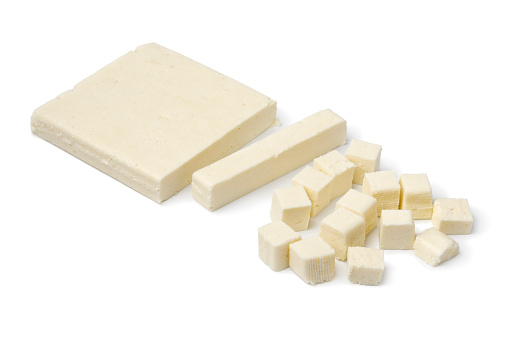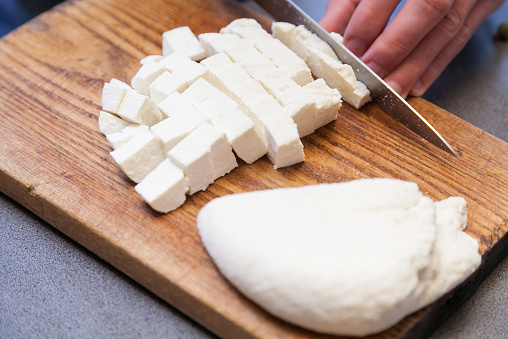Paneer, also known as cottage cheese, is a popular ingredient in Indian cuisine. It is made by curdling milk with lemon juice, vinegar, or another type of acidic substance, and then pressing the resulting curds to remove the whey. Paneer is high in protein and calcium, and it is also a good source of several other nutrients. However, there are some potential drawbacks to consider when it comes to the nutritional value of raw paneer and whether or not it is healthy for you.
One of the main benefits of raw paneer is its high protein content. Protein is an essential nutrient that plays a variety of important roles in the body, including building and repairing tissues, producing enzymes and hormones, and helping to maintain healthy skin, bones, and muscles. A single serving of paneer (about 100 grams) contains about 11 grams of protein, which is about 22% of the recommended daily intake for adults. This makes paneer a good choice for vegetarians and others who may be looking to increase their protein intake through plant-based sources.
In addition to its protein content, raw paneer is also a good source of calcium. Calcium is a mineral that is important for maintaining strong bones and teeth, as well as normal blood clotting and muscle function. A serving of paneer contains about 207 milligrams of calcium, which is about 21% of the recommended daily intake for adults. This makes paneer a particularly good choice for people who may not be getting enough calcium in their diet, such as those who are lactose intolerant or following a vegan diet.
Paneer is also a good source of several other nutrients, including vitamin B12, riboflavin, and phosphorus. Vitamin B12 is important for the production of red blood cells and the proper functioning of the nervous system, while riboflavin helps to convert food into energy and supports healthy skin, eyes, and hair. Phosphorus is a mineral that is involved in the structure of cells and tissues and is important for the proper functioning of the kidneys, heart, and other organs.
Despite its many nutritional benefits, there are also some potential drawbacks to consider when it comes to the healthiness of raw paneer. One concern is that paneer is high in saturated fat, which can raise cholesterol levels and increase the risk of heart disease if consumed in excess. A serving of paneer contains about 7 grams of saturated fat, which is about 35% of the recommended daily intake for adults. It is important to limit saturated fat intake and choose healthier sources of fat, such as olive oil and avocados, to reduce the risk of heart disease.
Another potential concern with raw paneer is its high sodium content. Sodium is an electrolyte that is important for maintaining normal fluid balance in the body, but it can also increase the risk of high blood pressure if consumed in excess. A serving of paneer contains about 479 milligrams of sodium, which is about 20% of the recommended daily intake for adults. It is important to limit sodium intake and choose lower sodium alternatives, such as unsalted nuts and seeds, to reduce the risk of high blood pressure and other related health problems.
In conclusion, raw paneer is a nutritious food that is high in protein, calcium, and several other essential nutrients. However, it is also high in saturated fat and sodium, which can be harmful to health if consumed in excess. It is important to consume paneer in moderation and to balance it with other healthy foods as part of a well-rounded diet.

 Home
Home Health
Health Diet & Nutrition
Diet & Nutrition Living Well
Living Well More
More












